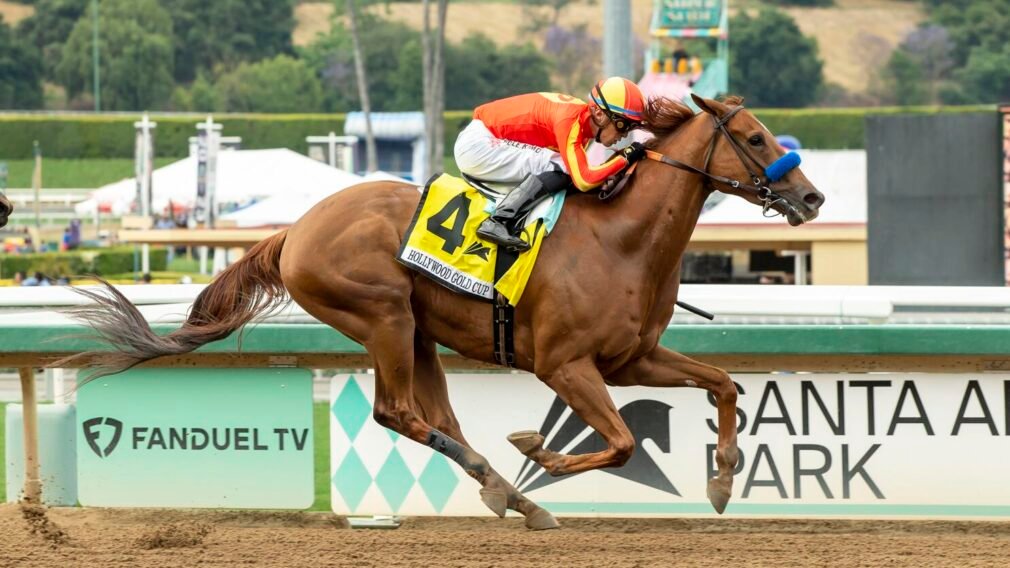Louisiana’s Bill for Fixed-Odds Horse Racing Wagering Lands on the Governor’s Desk
Louisiana lawmakers passed House Bill 547 to legalize fixed-odds horse racing, but the move has ignited both optimism and fierce opposition.

A New Era for Horse Racing Bets
Louisiana’s House Bill 547, passed overwhelmingly, aims to shake up horse racing by introducing fixed-odds wagering. Unlike the traditional pari-mutuel system, where odds shift until a race starts, fixed-odds betting locks in a wager’s payout at the time it’s placed, mirroring sports betting.
The bill sailed through the House 98-0 and the Senate 36-1, landing on Governor Jeff Landry’s desk for a signature. “Fixed-odds betting offers a competitive product,” said Representative Chad Boyer, the bill’s sponsor, noting its traction in other states.
If signed, Louisiana would join New Jersey, Colorado, and West Virginia as the fourth state to allow this betting style.
Boosting the Industry
Supporters see H.B. 547 as a lifeline for Louisiana’s horse racing industry. Boyer argued it creates a “more predictable and appealing” option for bettors, drawing in fans of traditional sports betting.
Former NFL quarterback Jake Delhomme, a thoroughbred owner, backed the bill, saying it’s about getting “our unbelievable product on a national stage,”.
The legislation funnels 5% of net proceeds into the Fixed Odds Horse Wagering Purse Supplement Fund, boosting race purses and horse breeding.
Online sportsbooks like DraftKings and FanDuel could offer fixed-odds bets, but for in-state races, they’d need approval from racetracks and the Horsemen’s Benevolent and Protective Association. Delhomme emphasized it’s not gaming expansion but a way to “generate more revenue” for the state.
Churchill Downs’ Dire Warning
Not everyone’s cheering. Churchill Downs Inc. (CDI), owner of New Orleans’ historic Fair Grounds Race Course, slammed H.B. 547 as a threat to its business.
CEO Bill Carstanjen warned it “negatively impacts” Fair Grounds’ competitiveness, shifting betting revenue from racetracks and off-track betting sites to out-of-state bookmakers.
CDI is now considering surrendering its Fair Grounds racing license, along with permits for historical horse racing machines and video poker.
Carstanjen called the potential closure of “one of the nation’s oldest racetracks” a “devastating blow” to Louisiana’s equine industry and New Orleans’ economy, blaming legislative inaction.
The Louisiana State Racing Commission’s Stephen Landry confirmed receiving CDI’s letter but said discussions await the next meeting, per the press release.
Economic and Local Stakes
The bill’s financial impact remains murky. Louisiana’s Legislative Fiscal Office couldn’t pinpoint its revenue potential, as it hinges on adoption by racetracks, bookmakers, and betting apps.
Supporters see it as a way to modernize racing and keep Louisiana competitive, especially as fixed-odds betting gains ground elsewhere. Delhomme framed it as a boost for local racing associations, with purse funds supporting horsemen and breeders.
Yet CDI’s threat to exit Fair Grounds raises alarms about job losses and economic ripples in New Orleans, where the track hosts key races like the Louisiana Derby. Carstanjen stressed the hit to “hundreds of employees, local vendors, and community” if Fair Grounds shuts down.
Recommended
